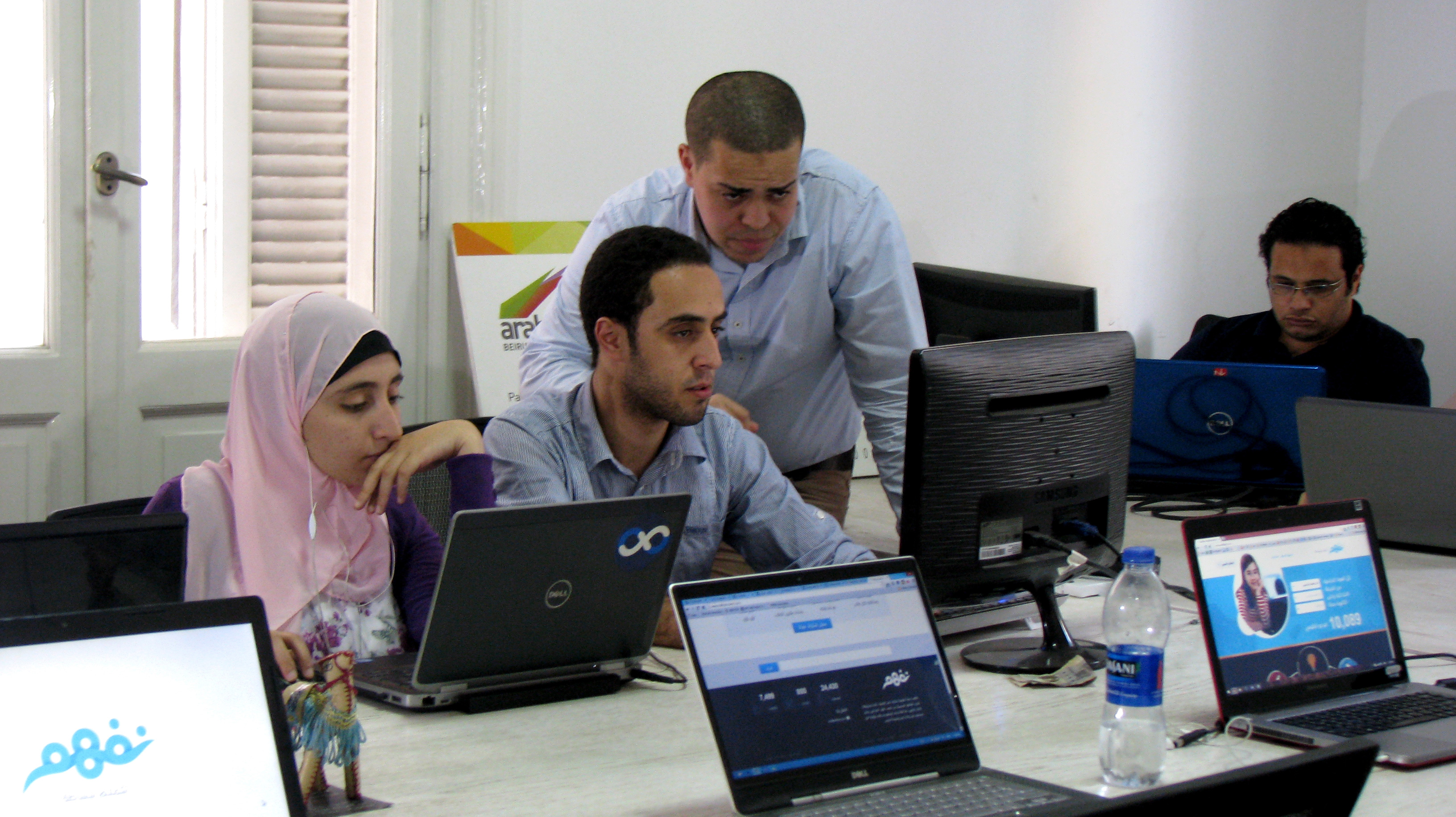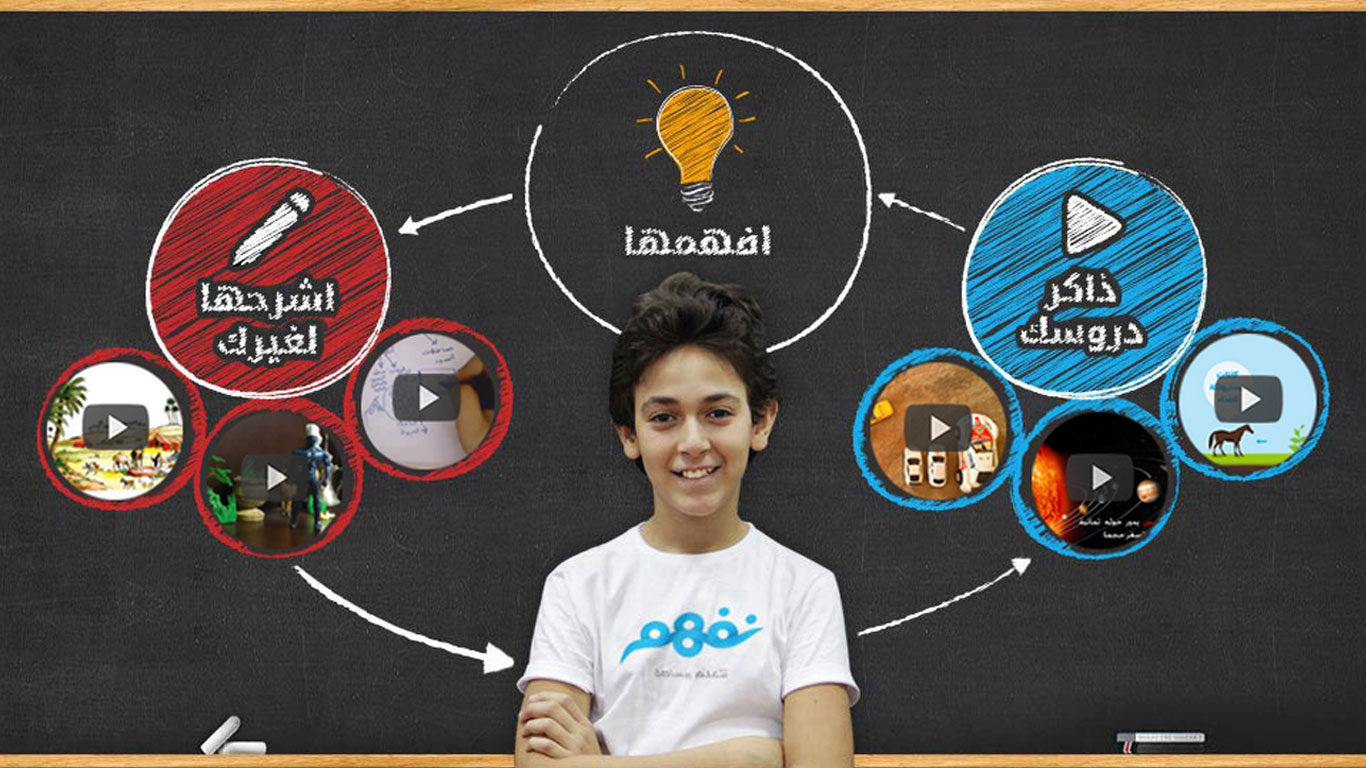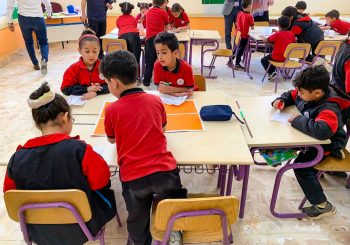With more than 60 million video views and 600,000 active students on a monthly basis in 5 countries, Nafham has cracked the entrepreneurial scene by becoming the Middle East’s region largest educational platform.
We sat down with Muhammad Habib, co-founder and COO of Nafham to learn more about the platform.
What was the main objective behind initiating such a project?
Back in 2011, the founders were looking at statistics in Egypt showing increasing birth rates without similar increase in numbers of schools built, which created a gap between the ideal and the actual classroom sizes.
One of the main reasons behind the poor quality of education is the inability of the education system to serve the growing population. In fact, the birth rate announced by the Statistics Department in 2009 is 2.6 million. In 6 years (2015) those 2.6 million children entered the schooling system, which can only accommodate 1.8 million. The 800,000 children are being packed in overcrowded classrooms, attending shorter academic days designed to accommodate different students at multiple shifts, or worse, not enrolled or dropping out early. This gap is increasing on an annual basis given the discrepancy between the accelerating population growth rate and the much slower school building rate.
With USD 2-3 billion spent on private tutoring in Egypt every year and still the illiteracy rate is 25 percent on average, exceeding 35 percent in some governorates (according to CAPMAS), it is clear that schools alone are unable to help students reach their full educational potential.
Generally speaking, what do you think the current educational system in Egypt lacks and how does Nafham contribute to this shortage?
It’s clear from the problem description that it’s difficult for students in overcrowded classes to absorb information and understand their lessons clearly.
So Nafham is depending on the technology to fix the lack of physical schools issue by providing KG-12 crowdsourced videos explaining official curriculum lessons. Students can learn at their own pace, moving back and forth through the video and even check other alternative videos explaining the same lesson by other contributors.

How is the government playing a role in providing support, funds, etc.?
Nafham recently partnered with the Ministry of Communications and Information Technology in the community centers initiative, providing online access for students through their internet-connected spaces.
What role do you expect society to play in coordination with Nafham?
Nafham is a crowdsourced platform, each one of the community can play an active role in helping students by explaining the official curricula lessons through videos. We provide the textbooks as PDF links through the website and we have a full tutorial page explaining how to record videos in various formats. Videos are then reviewed by our staff for accuracy and quality and published on our gamification platform through a monthly competition.

What are the main obstacles that face you as a founder to keep Nafham running?
Nafham has three cofounders: Ahmed El Alfi, Mostafa Farahat and myself.
The main obstacle is creating a sustainable business model; our original model was to provide everything for free and cover the costs through advertising and sponsorships. We are working now on adding other premium services to keep what we have for free now as is, besides offering more support to other students with premium accounts.
We are also trying to find local and regional partners to help expand models to other countries; we started offering beta versions of the Saudi, Kuwaiti, Algerian and Syrian curricula.
How are Egyptian teachers contributing and adding up to Nafham?
They are an important part of our crowdsourcing model. They are participating in creating and reviewing videos, beside answering students’ questions on our Q&A section.
What do you expect an average student would attain as an outcome after participating in one of your projects within the organization?
We encourage them to be more proactive, and to learn by teaching the lessons to their peers. We also provide them sessions to enhance the quality of their videos.
Nafham also has an ambassadors program, where we select active users and provide them with the tools and knowledge to expand our learn by teaching concept and work through groups to create different videos by spreading the word about Nafham in their own communities.
Tell me about some special teaching methods you use that make you different than schools.
Nafham is a supplementary service beside school and not in any way replacing it. What differentiates us is that we have various explanation alternatives for each lesson by different people and in different formats. We also encourage students to participate in the learning process and try to explain the lessons they understood to their peers.
What makes a student want to come to Nafham, or what attracts them most to participate?
Two of the most important things that make students want to visit Nafham include the contest we held monthly and competition between them through our gamification system where they get points for explaining videos and answering their peers’ questions. The alternative explanations for each video also makes Nafham more attractive for students.
What type of students do you target often?
Egyptian students (aged 6-18) with internet access are our primary targeted segment. They are estimated to be something between 8-9 million of Egypt’s total 19 million K-12 students. We have 600,000 monthly active users, 350,000 of which are students in Egypt. We reach around 5 million irregular users a year.
Apart from producing facilitated teaching methods, did you ever try to change or develop the current taught Egyptian curriculum, and how?
No we didn’t; currently we are focusing on the presentation layer not the content. However, we started to offer courses in our General Education section, which varies between technical courses, calligraphy, self development and vocational training.
Do you want to help Nafham? Nafham has been selected to represent the Arab world’s startup scene in 1776’s People’s Choice competition. You can help support Nafham by voting for them here to win a chance to pitch their startup against other entrepreneurs at the Global Finals.








Comments (3)
[…] par le Laboratoire d’action contre la pauvreté J-PAL. 11. Nafham Nafham (a) est une plateforme en ligne (a) gratuite, qui accueille des vidéo-cours correspondant aux programmes d’enseignement en […]
[…] Article published in Egyptian Streets […]